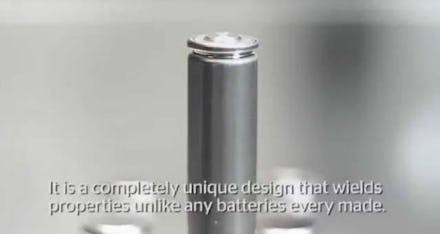The Solution to Longer Battery Life Has Finally Arrived

The news: A start-up from Japan has unveiled a new battery model — with the potential to revolutionize the entire energy market, and every industry that depends on batteries.
Meet the Ryden dual carbon battery, "a low-cost, recyclable, high-performance battery" created by Power Japan Plus. In its lifetime, it can go through 3,000 discharge/recharge cycles before noticeable degradation (existing consumer-grade cells can only last 300 cycles). It can also charge 20 times faster than a regular lithium-ion battery — which means it could fully charge an electric car in just a couple of minutes.
"Current advanced batteries have made great improvement on performance, but have done so by compromising on cost, reliability and safety," said Dr. Kaname Takeya, CTO of Power Japan Plus, in a statement. "The Ryden dual carbon battery balances this equation, excelling in each category."
How it works: The key ingredient behind Power Japan Plus' breakthrough is carbon. Both the anode and the cathode of the battery are made out carbon, with an organic electrolyte solution for ion flow. It does not contain any rare, heavy metals — such as cobalt, nickel, and manganese — which creates a host of benefits. The lack of rare metals, rare earth and heavy metals means that the Ryden battery is significantly cheaper to produce. There is also much less risk of fire, explosion or thermal change. That also means cars that use the Ryden battery don't need expensive cooling systems, and that the battery is stable enough to discharge completely without harming its longevity.
Image credit: Power Japan Plus
And the battery's carbon-based nature means that it is 100% recyclable. Power Japan Plus also has plans to develp an all-organic carbon model, which would make the Ryden battery the first organic battery on the market.
Why this is important: "We have ambitious claims," Chris Craney, Power Japan Plus's chief marketing officer, told the Atlantic earlier this month. "If there's an [electric vehicle] company that wants to climb to the Tesla level, we’d be a good company to talk to."
And indeed, the company's goals are ambitious, given how much power companies and the electric car market are growing — and changing. Tesla Motors, arguably the most notable name in the electric car game right now, announced in February with much fanfare that it was creating the biggest lithium-ion factory in the world. The company estimates that its Gigafactory would not only push the company's production from 35,000 to 500,000 cars a year, but would also disrupt the entire power industry by driving down costs.
Image credit: Tesla
But Power Japan Plus has the potential to change the game even further by getting rid of lithium-ion batteries completely. The company has already built a production line in Okinawa that will start pumping out 500 to 5,000 batteries a month later this year. It is also planning on collaborating with and licensing the technology to electric car makers, which means Tesla might want to hold its horses for a while.
And although the Ryden battery's potential impact on the electric car market is certainly exciting, it's important to keep in mind that the technology could change our lives in a myriad different ways. We currently use lithium-ion batteries to power everything from flashlights to satellites — a cheaper, safer and more sustainable battery could be the new key to propel other technologies forward.